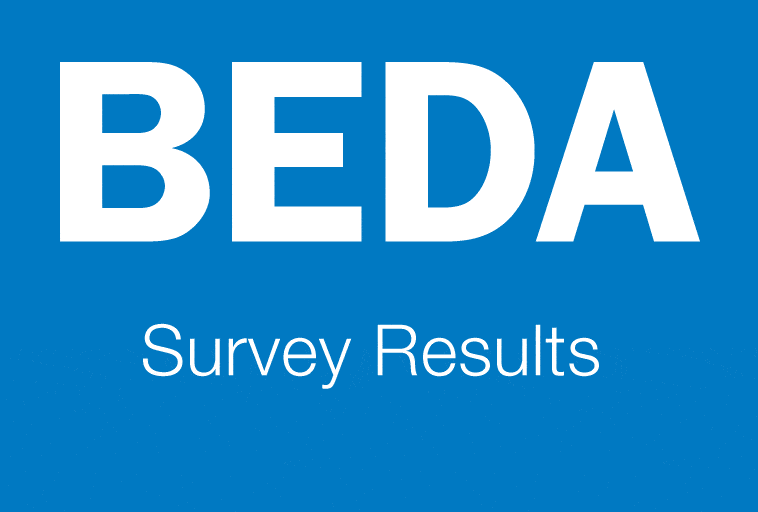
INSIGHT FROM MEMBERS – Revealing the red threads
Some initial conclusions drawn from the questionnaires completed by BEDA Members in 2014 and 2019 Board Member, Cyrielle Doutrewe
Board Member, Cyrielle Doutrewe
Trends in Members’ expectations
Although the number of people responding to the 2014 and 2019 questionnaires is not large, the responses provided are nonetheless indicative of some interesting trends.
In view of the indications given by the responses, we can say that what members expect from BEDA is essentially in line with its raison d’être: on the one hand, to be in contact with the European authorities, to lobby and influence the perception of design at the European level, and on the other hand, to give members the opportunity to network, exchange and even collaborate on common projects. In addition, members also expressed the desire to have access to relevant tools and content, including statistics, that can help them promote the value of design to their own national or regional constiutencies.
These indications are confirmed in the answers to the 2014 questionnaire which asked about the benefits that members expect to gain from BEDA. Networking, exchange of knowledge and know-how, collaboration and influence on European policies appear at the top. As for the challenges that BEDA could help its members face, the 2019 answers still indicate lobbying at a European level, networking, knowledge sharing, but also the acquisition of metrics about design and its added value. A better understanding of policy design also appears among the 2019 challenges.
Sharing knowledge and good practices
Regarding subjects on which the members are the most willing to share knowledge or good practices, the most frequently given answers to the 2019 questionnaire are collaboration between SME’s and designers, innovation, EU projects, design exhibitions and awards, but also policy design, service design and eco-design/sustainability.
Regarding design itself and its recognition, the 2014 questionnaire asked members about their priorities. Among the most frequently given responses was the ability to raise the awareness about design and its added value, both in general and more particularly, in the awareness of public authorities.
Future view
The 2019 questionnaire asked BEDA members what they believe to be the highest impact areas of design by 2024. Sustainable design was by far the most frequent response, with all its nuances including environment, climate change, eco-design and circular economy. Policy design was also present in the answers along with service design, technology, smart cities and data design.
Acting upon the insight
The insight gathered through the questionnaires reveals a number of clear ‘red threads’ that inform the thinking and planning of the Board as it continues to guide BEDA in a clear and strategic direction towards the development of next generation design policy at the European level.
The Helsinki conference in December presents a clear opportunity for BEDA to gain expert feedback from multiple audiences, (including members attending), that will continue to inform our policy thinking and strategy.
Alignment of focus
BEDA’s positioning document ‘Towards a Next Generation Design Policy for Europe’,developed by BEDA Board Member Anna Whicher and Piotr Swiatek from PDR, with the insight and knowledge gained from BEDA Members’ workshops held during recent General Assemblies and the European Insight Forum – the last of which took place in May 2019 – sets in place for the year ahead a strong, framework for further development.
BEDA’s consultative, policy-development process, (comprising a variety of facets: talks, meetings, workshops, a conference, research, documentation etc), will enable BEDA to develop credible and relevant design policy insight that in turn can be used to connect to the concerns and aspiration of the relevant policy makers at the EU level.
Opportunities in a changing policy landscape
The new Commission is currently setting in place its strategies for the coming five years and BEDA is already connecting at the right levels of influence. This is evidenced through the invitation for BEDA to be represented on the EU’s Creative Industries high-level Expert Group and to provide legal expertise for the Intellectual Property Expert Group on dispute resolution.
BEDA’s conferences and Forums of course also provide platforms for Members to meet and network and to gain new knowledge from each other about current and planned programmes and initiatives. BEDA events offer a rich seedbed for possible future synergies and action.
Collaborative action for success
The BEDA Member questionnaires are a helpful way of keeping BEDA aligned to the needs and aspirations of its Members.
BEDA can only contribute meaningfully to a successful Europe and develop next generation design policy with the representation and support of all its members small and large. Our diversity is a key strength, as is our representational ‘presence’ across the continent of Europe. No other design organisation has this reach and BEDA has the opportunity to strengthen the role of design in policy-making with the power to positively and sustainably effect the lives of the citizens of Europe, as well as supporting the growth and development of Europe’s design industries.
In order to do this well, we need to understand both our members’ needs and those of our target audiences. Through the insights gained from the BEDA questionnaire, we will continue to weave the red threads together, shaping a strong focus for our energies and aligning our demands to those we seek to lobby.
*If you have not done so and would like to complete the 2019 questionnaire, pleasedownload it here and return to Cyrielle at [email protected]
** If you feel you would like to offer support in one of the red threads mentioned above, we would love to hear your ideas.Please contact Päivi at [email protected] or Michael at [email protected]. Thank you.
